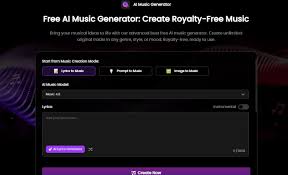The New Frontier of Music Creation
Artificial intelligence is transforming how we understand and apply music theory. From analyzing chord progressions to generating complete symphonies, AI tools are helping musicians, producers, and educators explore new creative possibilities while demystifying complex theoretical concepts.
How AI Understands Music Theory
1. AI-Powered Music Analysis
Modern AI systems can:
Identify chord progressions in real-time
Detect scales and modes
Analyze harmonic complexity
Recognize musical forms and structures
Popular tools:
Hooktheory (AI-assisted song analysis)
Melody Scanner (Chord recognition AI)
Sonic Visualiser (Advanced music analysis)
2. AI as a Music Theory Teacher
Interactive learning platforms using AI:
Yousician (Real-time feedback on playing)
Melodics (AI rhythm training)
Soundtrap by Spotify (AI-assisted music education)
3. Generative Music Theory
AI that creates music based on theoretical rules:
AIVA (Classical composition AI)
Amper Music (Theory-based music generation)
Google's Magenta (AI music research project)
Practical Applications of AI Music Theory
For Musicians:
Instant harmonic analysis of favorite songs
AI-generated practice exercises
Real-time composition suggestions
For Producers:
AI-assisted chord progression generation
Automatic key matching for samples
Intelligent arrangement suggestions
For Educators:
Automated grading of music theory assignments
Personalized lesson plans based on student progress
AI-generated examples for teaching concepts
The Future of AI in Music Theory
Emerging developments include:
Neural networks that develop new theoretical concepts
AI that can explain its compositional choices
Real-time theory assistance during live performance
Free AI Music Theory Tools to Try
Hookpad (Browser-based theory helper)
Orb Composer (AI composition assistant)
iReal Pro (AI-backed jazz practice tool)
Limitations and Considerations
While powerful, current AI music theory tools:
May oversimplify complex theoretical concepts
Sometimes produce theoretically "correct" but musically bland results
Lack the cultural/historical context of human experts
Conclusion
AI music theory tools represent an exciting new resource for musicians at all levels. By combining traditional theoretical knowledge with AI assistance, creators can explore new musical possibilities while strengthening their fundamental understanding.









